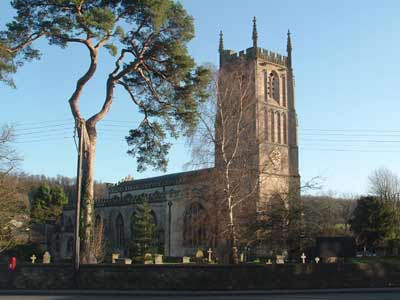3 April 2006
Clifton-Brown delighted that Cotswolds churches are saved.
Organs in the oldest and most picturesque churches in the Cotswolds, together with some of the great cathedral organs of England, like St Paul’s, Salisbury and St Albans, could have been silenced by a bureaucratic directive from Brussels if it had not been for the intervention of a group of Conservative MPs including local member Geoffrey Clifton-Brown.
The EU Directive on the Restriction of Hazardous Substances would have banned the use of lead in pipe organs, and from July, would have made it illegal to build new organ pipes or to move old ones from one church to another unless they are blown by hand. The directive will not only have harmful cultural implications, but will inflict job losses on organ manufacturers and eventually on professional organists.
The lead alloy used in the organ pipes provides the timbre that gives liturgical music its beauty when played on a church organ and the sound cannot be reproduced using any other metal.
The original aim of the directive was to prevent lead from discarded electrical machinery ending up in landfill sites and so poisoning the soil. But the way in which Brussels framed the new rule meant that church organ pipes were caught up in it.
Geoffrey Clifton-Brown said, “I have received many letters from constituents in the Cotswolds, particularly from Cirencester Church on the threat this posed to our churches. I am delighted to see that, as a result of Conservative pressure, the Minister responsible, Alun Michael MP, has promised that church organs can be excluded from the directive. My Conservative colleagues and I will continue to push the Government to ensure that this exemption is granted. I sincerely hope that the Government will take the opportunity to prevent the huge amount of damage this directive could cause to churches throughout the country and the United Kingdom’s cultural heritage.”
Organs in the oldest and most picturesque churches in the Cotswolds, together with some of the great cathedral organs of England, like St Paul’s, Salisbury and St Albans, could have been silenced by a bureaucratic directive from Brussels if it had not been for the intervention of a group of Conservative MPs including local member Geoffrey Clifton-Brown.
The EU Directive on the Restriction of Hazardous Substances would have banned the use of lead in pipe organs, and from July, would have made it illegal to build new organ pipes or to move old ones from one church to another unless they are blown by hand. The directive will not only have harmful cultural implications, but will inflict job losses on organ manufacturers and eventually on professional organists.
The lead alloy used in the organ pipes provides the timbre that gives liturgical music its beauty when played on a church organ and the sound cannot be reproduced using any other metal.
The original aim of the directive was to prevent lead from discarded electrical machinery ending up in landfill sites and so poisoning the soil. But the way in which Brussels framed the new rule meant that church organ pipes were caught up in it.
Geoffrey Clifton-Brown said, “I have received many letters from constituents in the Cotswolds, particularly from Cirencester Church on the threat this posed to our churches. I am delighted to see that, as a result of Conservative pressure, the Minister responsible, Alun Michael MP, has promised that church organs can be excluded from the directive. My Conservative colleagues and I will continue to push the Government to ensure that this exemption is granted. I sincerely hope that the Government will take the opportunity to prevent the huge amount of damage this directive could cause to churches throughout the country and the United Kingdom’s cultural heritage.”

